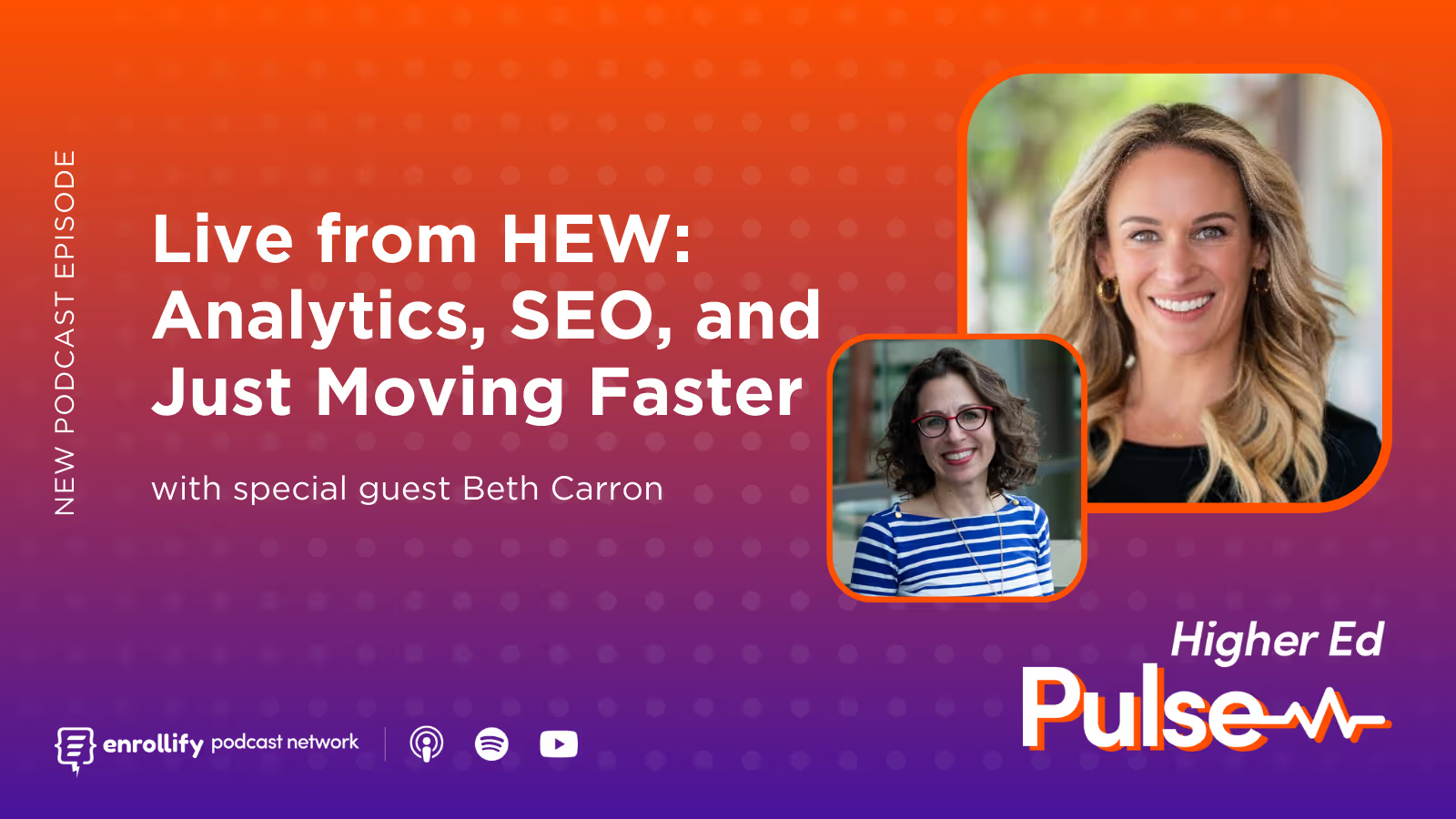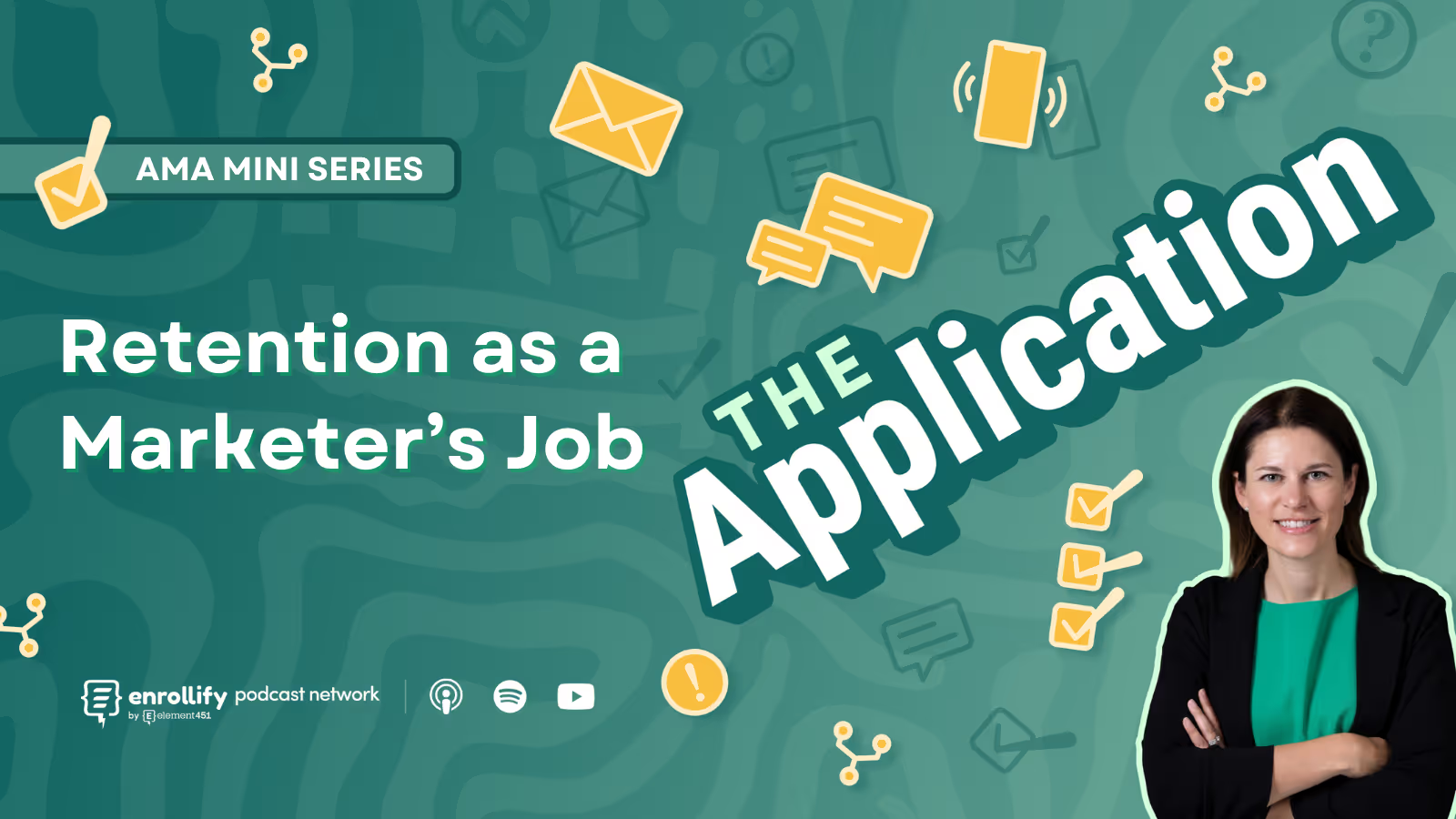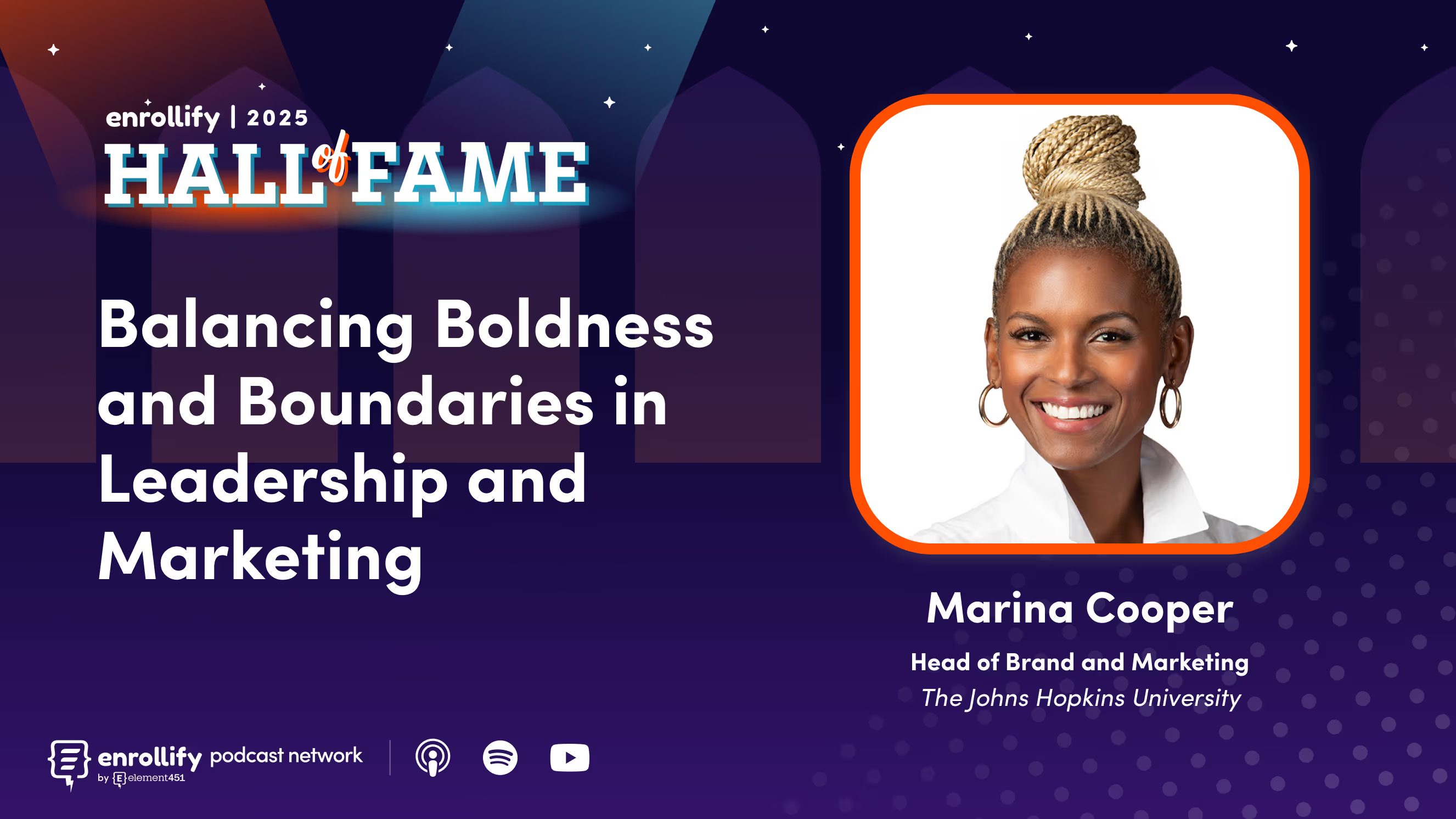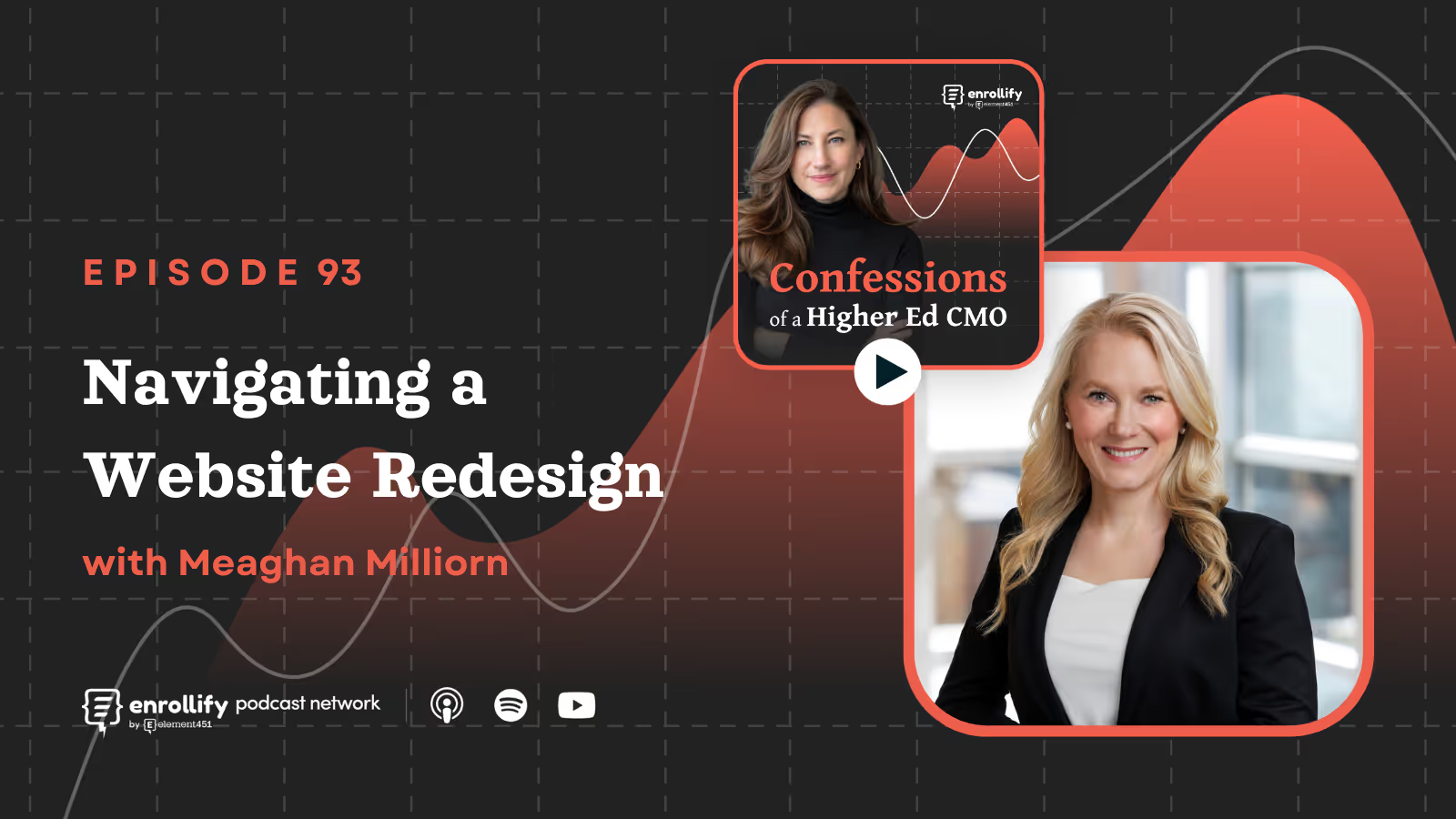About the Episode
About The Episode:
In another live episode from HEW, Mallory sits down with Beth Carron, Director of Higher Education Services at iFactory. Beth, a first-time attendee, shares her excitement about incorporating AI in higher education and delves into her area of expertise: using analytics to drive improvements on higher ed websites. Throughout the conversation, Beth emphasizes the importance of real-time testing and iteration to enhance site performance, user engagement, and SEO efforts.
Key Takeaways
- Higher ed institutions must move faster in testing and iterating website changes to improve performance.
- Analytics should be used to continuously optimize key metrics like engagement, click-through rates, and conversions.
- SEO is a powerful tool that needs regular monitoring and optimization for long-term success.
- AI is becoming an important tool to help small, overstretched teams manage tasks like SEO and analytics more efficiently.
- Institutions need to embrace a “messy” approach to analytics, focusing on incremental changes rather than waiting for perfect year-over-year comparisons.
Episode Summary
How can higher ed institutions use analytics more effectively?
Beth discusses the common practice of using analytics to make year-over-year comparisons, but she argues that higher education institutions no longer have the luxury of waiting that long. With the recent switch to GA4 and constantly shifting traffic patterns, she advises institutions to adopt a more dynamic approach by continuously tweaking elements like call-to-action buttons, headlines, and page layout. Rather than waiting for perfect data, Beth advocates for real-time testing to improve website performance incrementally. Small, consistent changes—such as adjusting button copy or experimenting with color schemes—can help reduce friction in the user journey and increase conversions.
Why should higher ed teams adopt a “messy” approach to analytics?
Beth urges higher ed marketing and admissions teams to embrace the “messiness” of working with incomplete data sets or evolving tools like GA4. She acknowledges that many institutions prefer to work with clean, consistent year-over-year data, but waiting for ideal conditions may not be possible, especially with declining enrollment and budget constraints. Her advice is to start testing and optimizing immediately, even if the process feels imperfect. By moving quickly and adjusting based on real-time insights, institutions can drive better results, such as more applicants or higher engagement on program pages, without waiting for an entire admissions cycle to pass.
How does SEO play into optimizing higher ed websites?
Beth emphasizes that SEO should be treated differently from analytics. SEO requires constant optimization, and the progress is often more visible and easier to measure over time. At iFactory, Beth and her team consistently monitor competitors’ keywords and adapt their strategies accordingly. She points out that SEO is a long-term game, but continuous effort yields incremental progress that can be tracked and improved monthly. By regularly optimizing keywords, meta descriptions, and content structure, institutions can ensure they are ranking well in search engines and driving traffic to their key pages.
Can AI help overstretched higher ed teams manage analytics and SEO?
Beth acknowledges that AI tools can offer a huge opportunity for teams that are juggling multiple responsibilities. By integrating AI into tasks like SEO analysis or content optimization, institutions can streamline their operations and make data-driven decisions more efficiently. AI won’t replace humans but can help with tasks like keyword research, tracking performance, and even content recommendations, allowing teams to focus on higher-level strategic initiatives. As AI continues to develop, Beth believes it will become an essential part of how small, overstretched teams manage their day-to-day work.
For more in-depth insights on how to incorporate AI, analytics, and SEO into your higher education marketing strategies, make sure to listen to the full episode. Beth Carron's actionable advice will help your institution move faster, optimize more effectively, and ultimately improve user engagement across digital channels.
Connect With Our Host:
Mallory Willsea
https://twitter.com/mallorywillsea
About The Enrollify Podcast Network: The Higher Ed Pulse is a part of the Enrollify Podcast Network. If you like this podcast, chances are you’ll like other Enrollify shows too!
Some of our favorites include Generation AI and Confessions of a Higher Education Social Media Manager.
Enrollify is made possible by Element451 — the next-generation AI student engagement platform helping institutions create meaningful and personalized interactions with students. Learn more at element451.com.
Element451 is hosting the AI Engage Summit on Oct 29 and 30. Register now for this free, virtual event.The future of higher ed is being redefined by the transformative power of AI. The AI Engage Summit brings together higher ed leaders, innovators, and many of your favorite Enrollify creators to explore AI’s impact on student engagement, enrollment marketing, and institutional success.
Experience firsthand how AI is improving content personalization at scale, impacting strategic decision-making, and intuitively automating the mundane tasks that consume our time. The schedule is packed with real examples and case studies, so you leave knowing how to harness AI to drive meaningful change at your institution.
Whether you’re looking to enhance student outcomes, optimize enrollment marketing, or simply stay ahead of the curve, the AI Engage Summit is your gateway to the next level of higher education innovation. Registration is free, save your spot today.















